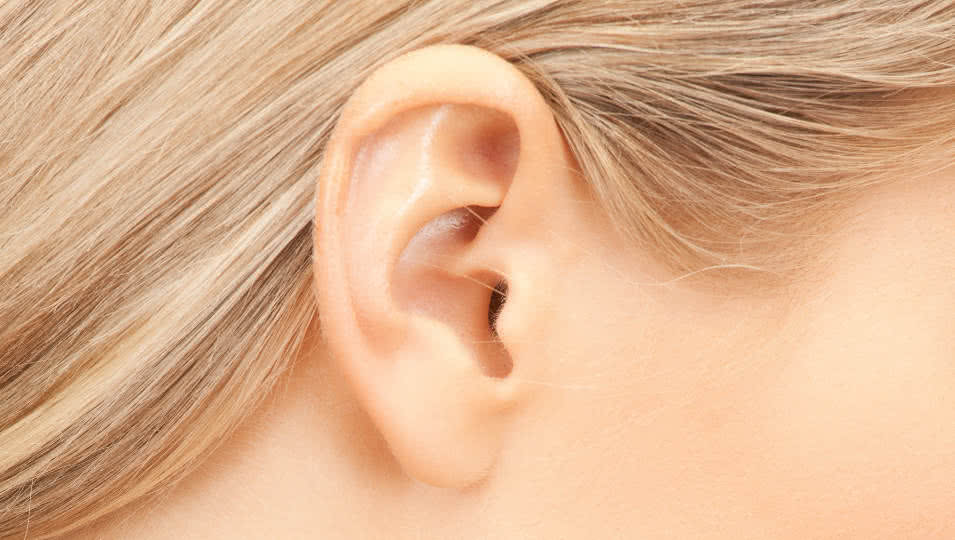Cosmetic Surgery - Ears
Published on: 6 Nov 2017, 2:28 p.m.
Mr Debashis Ghosh
NHS Consultant
GMC Number: 4657664

Medically reviewed by a licensed NHS consultant
Last updated: 15/08/2019Get Free & Simple Pricing, Procedure & After Care Information from a Licensed Consultant Now
Photo Credit: (Syda Productions)/Shutterstock.com
Table of contents
Also referred to as otoplasty or pinnaplasty, cosmetic surgery of the ears is performed to correct the size, shape or - most often - the position of the ears. It is one of the most commonly performed cosmetic procedures and can be done on both children and adults. Although it’s sometimes done for health reasons, for example to improve hearing problems, cosmetic ear surgery is most often done for purely aesthetic reasons.
Why It’s Done?
The goal of the cosmetic surgery of the ears is to correct protruding ears, and ears that are too large, oddly shaped or affect the patient’s appearance in any other way. The mentioned “issues” involving the ears usually have no effect on hearing and overall ear health but they can cause severe psychological distress. In addition to being highly insecure about their appearance, many people with prominent ears also suffer teasing, ridicule or bullying at school or work which can further aggravate their distress and even lead to depression.
The Procedure
Cosmetic surgery of the ears is a relatively simple and straightforward procedure although the actual surgery depends greatly on the type of correction that will be done. To correct the position of the ears, the surgeon will make an incision behind the ears, cut out surplus skin and cartilage, and fix it closer to the head with stitches. But they may also correct the shape and position of the ear by reshaping the cartilage. Several techniques can be used to reduce the size of the ears, with the most common ones involving reduction of the earlobe or scapha cartilage.
The Results

Photo Credit: (Corbac40)/Shutterstock.com
Otoplasty has an exceptional success rate and over 90 percent of people who undergo the procedure are extremely happy with the results. But it may take some time for them to be fully visible.
The results are usually seen as soon as the swelling subsides but it may sometimes take several weeks to see permanent results. The incision leaves a scar but first, it is hidden behind the ear and second, it eventually fades and becomes barely noticeable.
Side Effects and Possible Complications
After the surgery, it’s normal to experience some pain and discomfort. As the ears begin to heal, many patients also experience itching. The bandages are removed after a few days, while the stitches are taken out a few weeks after the procedure unless dissolvable stitches were used. Like their name suggests, they eventually dissolve on their own and thus they don’t need to be removed.
Otoplasty is a very safe procedure and complications are highly unlikely. But every surgery, including cosmetic surgery of the ears can lead to complications such as infection, bleeding and severe reactions to anesthesia. Other - less dangerous but potentially very upsetting - complications include scarring, irritation from stitches and unsatisfactory results.
Is Cosmetic Surgery of the Ears Right for You?
Otoplasty is a good idea if you would like your ears to be closer to the head. You’re also a good candidate for cosmetic surgery of the ears if you’re discontent with the size or shape of your ears, or if you have ear deformation due to an injury or congenital malformation.
Since ears grow to mature size in early childhood, there is no need to wait until adolescence or adulthood to have a cosmetic ear surgery. The latter can be performed on children as young as 5 years of age, while the so-called ear splinting can be used to correct ear position even in babies younger than 6 months of age. On the other hand, you are never too old to have your ears’ size, shape or position surgically corrected. Otoplasty can also be done at any time during adulthood.
The Cost
If done on the NHS, cosmetic surgery of the ear doesn’t cost anything. However, since it is most often carried out for aesthetic reasons, it is very difficult to get it on the NHS. You will be considered only if you can prove that the size, shape or/and position of your ears is causing a major psychological distress or if you need otoplasty for health reasons, e.g. improve hearing.
If you can’t get cosmetic surgery of the ears on the NHS, you will obviously have to have it done privately. The cost tends to vary but expect to pay about £2,000, depending on where you will have the procedure. Here are some financial options you should consider.
Table 1: Cost of Ear Cosmetic Surgery in the UK
| Region | Lowest Price | Highest Price |
|---|---|---|
| London (Harley Street) | £2,310 | £2,310 |
| South East England | £2,310 | £4,615 |
| South West England | £2,599 | £3,345 |
| Wales | £1,697 | £2,845 |
| East Midlands | £2,240 | £2,915 |
| West Midlands | £2,579 | £3,805 |
| East of England | £2,370 | £4,135 |
| North East England | £2,245 | £3,385 |
| North West England | £2,150 | £3,035 |
| Yorkshire and the Humber | £2,312 | £3,490 |
| Scotland | £1,950 | £3,270 |
Source: Private Health UK
The cost of plastic ear surgery abroad tends to be lower than in the UK. But considering that besides the procedure, you also have to pay for travel, accommodation and insurance, flying abroad may no longer seem such a good idea. Neither from the financial nor health perspective because travelling immediately after having a surgical procedure has been linked to an increased risk of complications.
Table 2: Cost of Ear Cosmetic Surgery Abroad
| Country | Procedure Cost | Total Cost* |
|---|---|---|
| Poland | £700 | £994 |
| Czech Republic | £480 | £896 |
| Hungary | £885 | £1,221 |
| Lithuania | £461 | £796 |
| Turkey | £801 | £1,141 |
| Spain | £1,433 | £1,897 |
| Belgium | £1,100 | £1,726 |
| Thailand | £1,000 | £1,854 |
*includes the cost of the procedure, travel, accommodation and insurance
Source: Treatment Abroad
Photo Credit: (Robert Prybysz)/Shutterstock.com
Finding a Surgeon for Cosmetic Ear Surgery
No matter if you are looking for a surgeon for ear correction or any other cosmetic procedure, you shouldn’t be guided by the price alone. You are advised to talk to your GP first because they know your medical history and your current health status including any existing conditions that may negatively affect the outcome of the procedure or be made worse by the surgery. Your GP may also know a good surgeon nearby.
including any existing conditions that may negatively affect the outcome of the procedure or be made worse by the surgery. Your GP may also know a good surgeon nearby.
You may also look for a cosmetic surgeon on the British Association of Aesthetic Plastic Surgeons (BAAPS) website which has an excellent database of cosmetic surgeons in the UK. But before you decide to go through with the procedure, make sure that the chosen surgeon is registered with the General Medical Council (GMC). The NHS also recommends to look up the hospital or clinic where the surgery is going to be performed in the Care Quality Commission (CQC) database if you are having it done in England.
Questions to Ask and Things to Pay Attention to When Choosing a Surgeon
Just because the surgeon is registered with the GMC, that doesn’t necessarily mean they have the skills and experience required to help you achieve the desired results. Simply put, some surgeons are better than the others and you obviously want your surgery to be performed by a good surgeon. You are recommended to make an appointment with several surgeons to discuss the desired procedure. Don’t hesitate to ask for additional information or explanation if anything is unclear or if you have any questions/second thoughts about the procedure, results, aftercare or anything else related to the surgery.
Feel free to ask whatever you think it vital for you to know to make an informed decision. But you are also highly recommended to ask the 10 questions below.
1.Will you operate my ears?
2. Are you trained and qualified to perform otoplasty?
3.What’s your experience? How many ear surgeries have you performed?
4.What procedure you are going to use?
5.What other procedures exist and why they are less suitable?
6.Is it possible for you to tell me your patient satisfaction levels?
7. What are the potential risks and complications?
8.Do you provide care/treatment for complications of otoplasty?
9. What is the procedure in the event I’m not satisfied with the result?
10. How much will the surgery cost and are there any other costs involved?
Remember that it’s crucial for you to fully understand the procedure, what will be done, how, what is normal, what may be a sign of complications, and last but not the least important, will the results match your expectations. And if not, why not? Because your expectations are unrealistic or because the surgeon doesn’t have the necessary skills or equipment, or both.
What If Something Goes Wrong?
Most cosmetic ear surgeries are successful, with the majority of patients being very happy with the results. Nevertheless, it is very important to know what to do in the event something goes wrong, e.g. you develop complications such as an infection or if you’re not happy with the outcome of the surgery.
In case you experience any problems after the surgery or if the results don’t meet your expectations, you should first contact the surgeon who performed the surgery. They will evaluate the results and tell you what can be done to resolve the issue. You may also be offered compensation for any additional costs and/or inconveniences. If they assess that they contributed to the unsatisfactory results in any way, they may also offer you a revision surgery.
If the surgeon refuses to take the responsibility for the complication or unsatisfactory outcome of the procedure, it’s perhaps because they are convinced that it’s not their fault. If you disagree, you can turn to the clinic or hospital directly and tell them that you want to make a complaint. Most clinics and hospitals take patients’ complaints very seriously and put a lot of effort into making their patients happy.
If you are firmly convinced that the surgery wasn’t performed properly and neither the surgeon nor the clinic/hospital where the surgery was carried out don’t want to accept the responsibility, you can file a complaint to the General Medical Council (GMC) or/and report poor care to the health care regulator in your respective country. In England, that would be the Care Quality Commission (CQC). They will let you know what is the complaint procedure, how long it takes for your complaint to be resolved and what can you expect from it.
